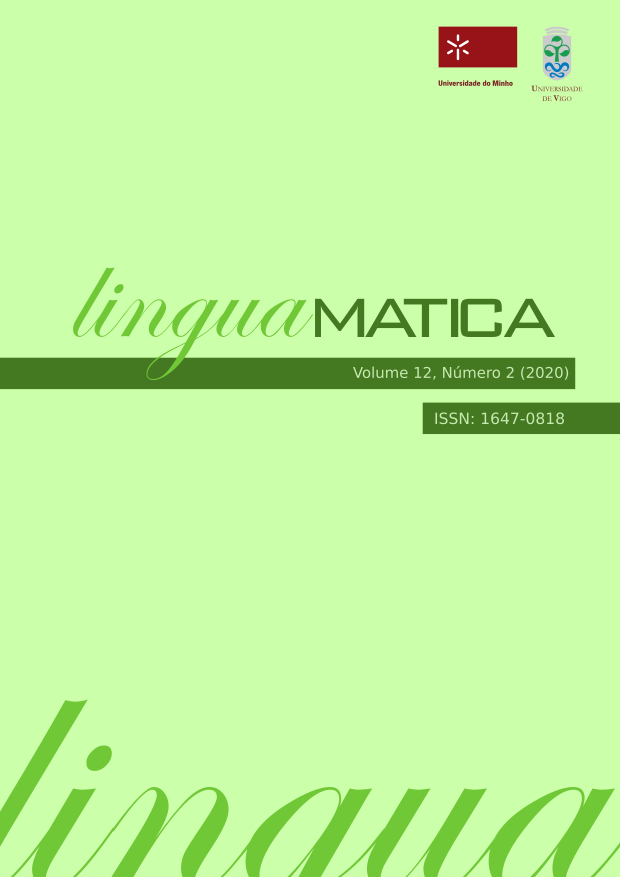Assessing named entities in the ELTeC-por collection
Abstract
This paper reports on the NER annotation of the ELTeC-por collection, a collection of hundred Portuguese novels published between 1840 and 1920, compiled in the scope of the COST action "Distant reading for European literary history".
In addition to discussing its compilation, the choices taken and what remains to be done, we provide an initial characterization of the novels according to size, subgenre, publication place, author gender and which edition was used.
Then we present PALAVRAS-NER, the NER system which we use to annotate the collection, explaining the way it works.
We then focus on a subcollection of eight novels fully human revised, which we use to both evaluate the performance of the automatic system, and to characterize the population of the full collection. These novels can be further subdivided according to two different features: historical versus contemporary novels, on the one hand, and original vs. modernized ortography, on the other. Also some works are canonical while others are not.
In addition to the quantitative analysis of the annotation results and process, we present some qualitative description of the human revision as well.
We offer a detailed analysis of some categories, demonstrating how the most mentioned places, professions and demonyms can be good indicators for distant reading.
We end the paper comparing briefly with other work using named entities for literary texts and suggesting future work.
Copyright (c) 2020 Diana Santos, Eckhard Bick, Marcin Wlodek

This work is licensed under a Creative Commons Attribution 4.0 International License.
Authors who publish with this journal agree to the following terms:
- Authors retain copyright and grant the journal right of first publication with the work simultaneously licensed under a Creative Commons Attribution License that allows others to share the work with an acknowledgement of the work's authorship and initial publication in this journal.
- Authors are able to enter into separate, additional contractual arrangements for the non-exclusive distribution of the journal's published version of the work (e.g., post it to an institutional repository or publish it in a book), with an acknowledgement of its initial publication in this journal.
- Authors are permitted and encouraged to post their work online (e.g., in institutional repositories or on their website) prior to and during the submission process, as it can lead to productive exchanges, as well as earlier and greater citation of published work (See The Effect of Open Access).













